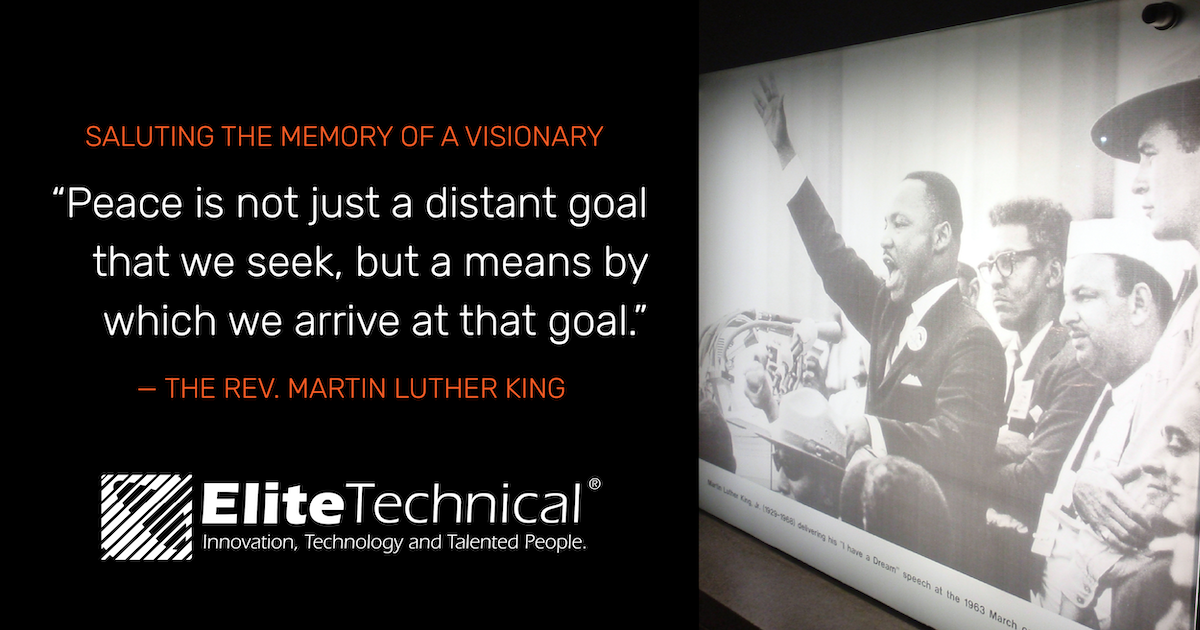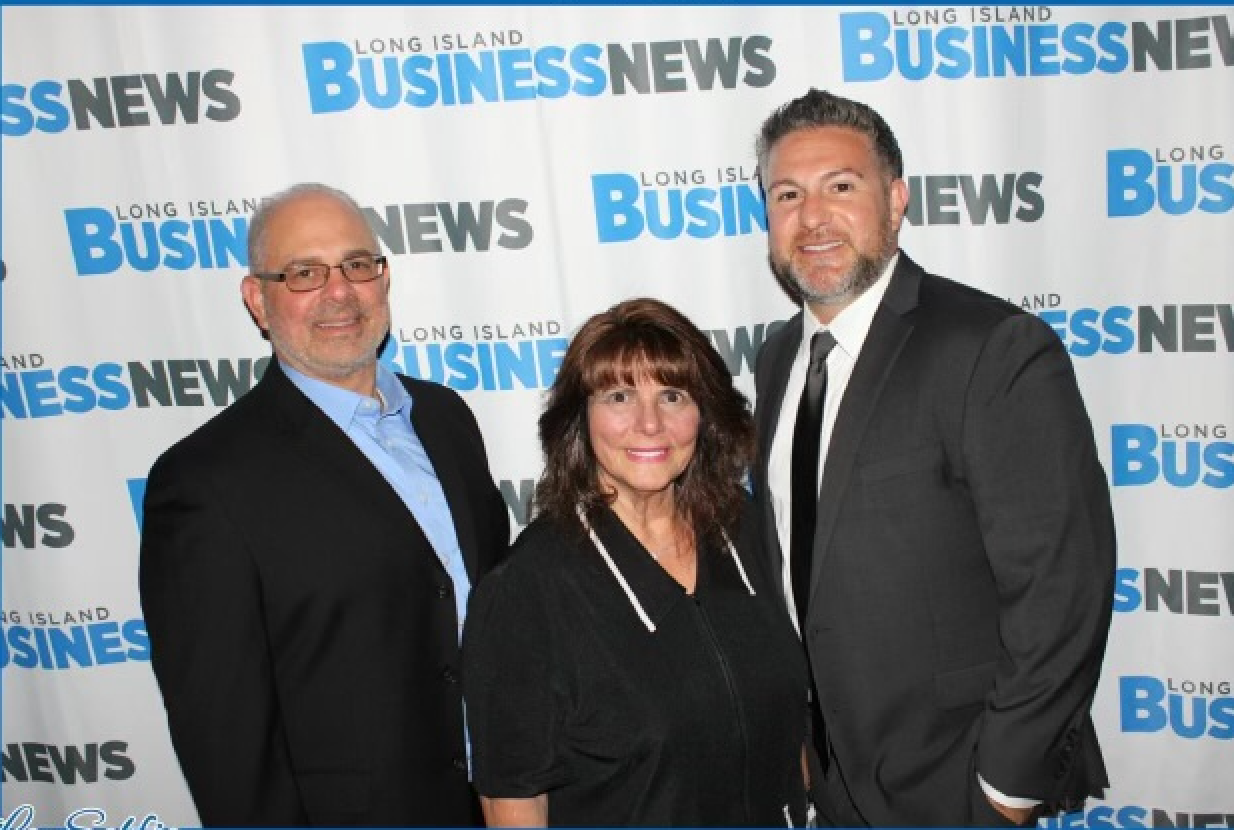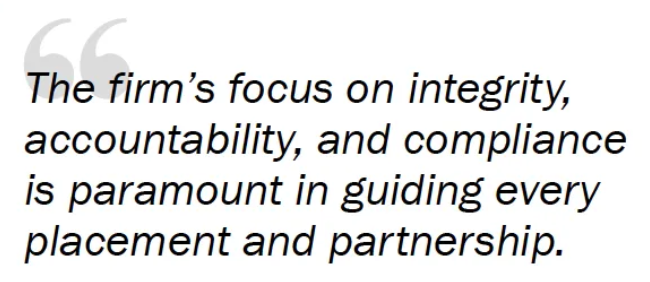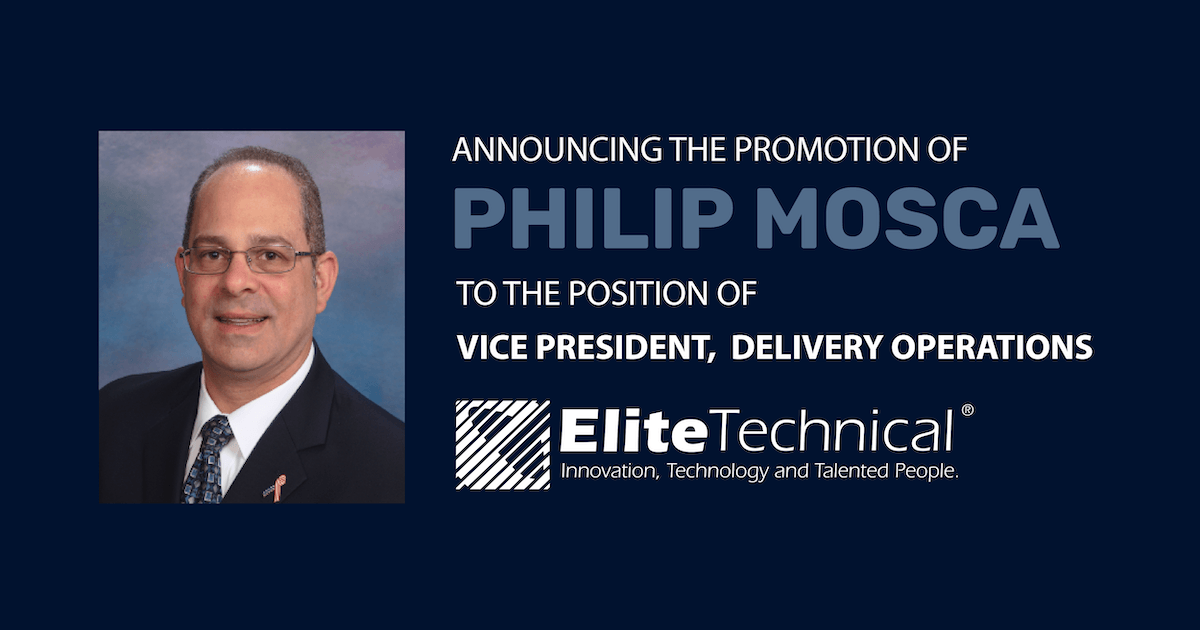Advancing the Dream of Dr. Martin Luther King
And How the Staffing Industry Can Help

Born January 15, 1929, as the son of a Baptist minister and his wife, the Reverend Dr. Martin Luther King, Jr., is renowned for his inspirational role as a leader of the American civil rights movement in the 1950s and 60s.
Known for his rousing combination of impassioned speeches and call for nonviolent protest of segregation, King earned a doctoral degree in theology in 1955, went on the organize the first major protest in support of African American civil rights, and helped achieve significant civil rights advances for African Americans.
The peaceful protests that Dr. King had advocated and led throughout the South were often met with violence, but the freedom movement continued to grow. During that tumultuous era, Dr. King’s message “had appealed to the Christian and American ideals of the time, which led to support from the federal government and Northern whites,” according to the website History.com (January 15th article, This Day in History.)
In 1957, the U.S. Congress had established a civil rights section of the Justice Department, along with a Commission on Civil Rights to investigate discriminatory conditions. In 1963, the March on Washington for Jobs and Freedom concluded with Dr. King’s famous “I Have a Dream” speech. (See History.com )
The Rev. M.L.
King’s Impact on Employment Law
King’s inspiration and dedication had far-reaching impact. He successfully
lobbied for passage of the Civil Rights Act of 1964, along with famous activists
such as The Hon. John Lewis (a Georgia resident who later was elected to the
U.S. House of Representatives), and Bayard Rustin and A. Philip Randolph, who
led the massive March of Washington. Of note, white labor organizer Walter
Reuther spoke at that event, as did Rabbi Joachim Prinz, a white German
American Zionist, and a black woman, Daisy Bates, who spoke on behalf of Rosa
Parks with a message for black women.
(Find more
interesting facts
about the famous I Have a Dream
speech.)
The Civil Rights Act of 1964 ended segregation in public places and banned racial discrimination in employment on the basis of race, color, religion, sex, or national origin. It also outlawed racial segregation in public education and facilities.
Dr. King, who later won the Nobel Peace Prize, said the Civil Rights Act of 1964 was nothing less than a “second emancipation,” according to History.com.
Founder of the Southern Christian Leadership Conference, King was assassinated in Memphis, Tennessee, on
April 4, 1968, which led to an “outpouring of anger among black Americans, as
well as a period of national mourning that also helped speed the way for an
equal housing bill, The Civil Rights Act was later expanded to
bring disabled Americans, the elderly, and women in collegiate athletics under
its umbrella,” according to History.com
Advancing the MLK Dream
Despite great progress legally and socially over the years, our country still remains divided by beliefs and practices around racism. So, how do we as a society change a circumstance that has existed in just about every society across every period in history as we know it?
To create a truly colorblind society we must first change as people – on the inside - in order to effect change outside. We also must deeply believe in the change(s) we want to see.
A great fan of Mahatma Gandhi’s non-violent civil disobedience, Dr.
King patterned his protests on those of Gandhi, who advised us to, “ Be
the
change
you want to see in the world.”
To get there, we must challenge our own beliefs as individuals and as communities
about what is fair and just and why
we believe that. We must seek the
evidence – not the rhetoric – behind our beliefs and peel back the layers to
decide what is true and what beliefs would be helpful to discard. In other
words, what limiting beliefs can and should we let go?
Drawing on the wisdom of Albert Einstein, we also must consider that, “We cannot solve our problems with the same thinking we used when we created them.” We cannot solve division by widening the divide or by persisting in mental camps of “us” and “them.”
With the Staffing Industry’s natural focus on Human Resources and its push for diversity over the years, we are in a unique position to lead change. For a chance at meaningful change, corporations, large and small, must continue to champion workplace fairness and equality -and support training initiatives that meet people where they are mentally and emotionally.
A few ways the Staffing Industry and HR Leaders can help:
• Set great examples by continuing to practice fair and equitable hiring and compensation policies and packages.
• Offer training for employees in critical thinking. Also sponsor
trainings for community members.
• Support community initiatives and organizations that advance fairness, peace, prosperity and equity among people and groups in ways that match your corporate values.
• Model being responsible for one’s own emotions at work. Take 100% responsibility for managing our feelings and set expectations to avoid blaming and shaming. (As we know, emotions run high during conversations about racism.)
• Offer employee training in managing emotions and building emotional resilience.
• Commit to having courageous and Crucial Conversations , when appropriate, to help teams and constituents seek and find common ground.
• Help people learn to step into another’s shoes so they get a feel for another’s experience and views from the inside out. (Visualization exercises and Neurolinguistic Programming training / strategies can help.)
• Offer training to build Extraordinary Relationships and Win-Win Communication .
• Focus on solving the right problems with input from a diverse team. Foster the importance of diverse perspectives in workplace conversations, while remembering that diversity programs must focus on the question of how to solve the right problems in the right way(s). Then litmus test your problem solving hypothesis for clarity, transparency and fairness. (See Thinking Fast and Slow by Nobel laureate Daniel Kahneman.)
And, remember - if you want to work with a diverse, productive team committed to equity and social responsibility - contact us at info@elitetechnical.com , call us at 1-800-ELITE-50, or submit your resume at elitetechnicaljobs.com.
Happy Martin Luther King Day!














